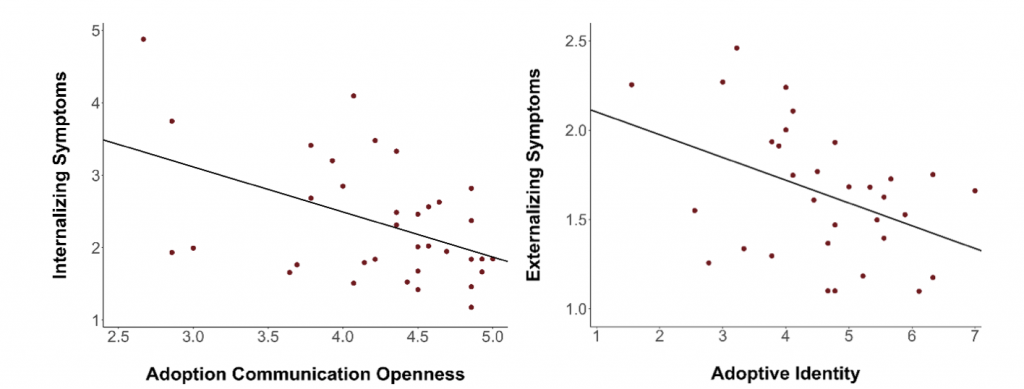By Sohee Irene Lee and Mariann Howland
Research has suggested that adopted children may be at higher risk for mental health difficulties, even though they are adopted into supportive families. Among the unique challenges that adoptees encounter are (1) finding their adoptive identity, (2) their personal thoughts and feelings about their adoption and (3) how that fits into their understanding of themselves. Open adoption-related conversations in the family may help adoptees feel more comfortable about their adoptive status. To our knowledge, no research has considered whether these adoption-related factors are associated with mental health symptoms among previously-institutionalized, internationally-adopted youth.
This study, led by undergraduate student Sohee Irene Lee, looked at relationships between adoption communication openness in the family, adoptive identity, and internalizing (i.e., depression and anxiety) and externalizing (i.e., aggression, defiance) symptoms among 36 previously-institutionalized adopted youth.
All participating youth were internationally adopted from institutions at a young age. At the time of participation, youth were between 11 to 21 years of age. Twenty-two were female and 14 were male. These youth originated from 13 different countries (33% from Russia, 28% from China, 11% from India and the rest from a range of countries). Participation involved an online questionnaire completed by these young people.
Because all measures were collected at the same time, we are not able to conclude that open adoption conversations and adoptive identity lead to better mental health outcomes (the relationship could also go in the other direction, with less mental health difficulties promoting more open adoption-related conversations in the family and adoptive identity). These findings suggest that improving open communication about adoption in the family may support the adoptive identity and mental health of adopted youth. These findings have implications for developing possible interventions, such as increasing the frequency of open, adoption-related conversations in the family.
We found that higher levels of adoption communication openness in the family were associated with lower levels of internalizing symptoms (shown in Figure 1). Also, higher levels of adoptive identity (degree of exploration and commitment to one’s adoptive status) were associated with lower levels of externalizing symptoms (shown in Figure 2).

Figure 2 (right). Youth with higher level of adoption identity experienced lower externalizing behaviors.



